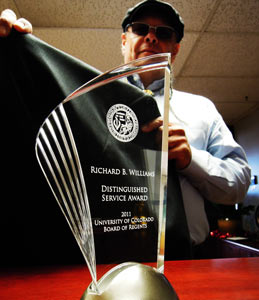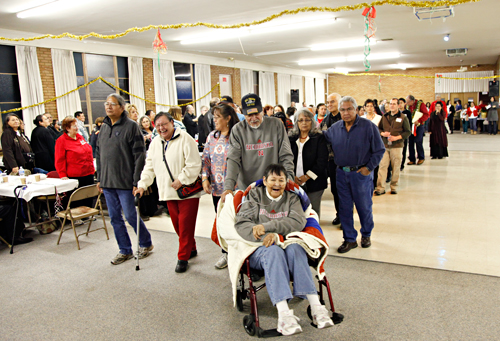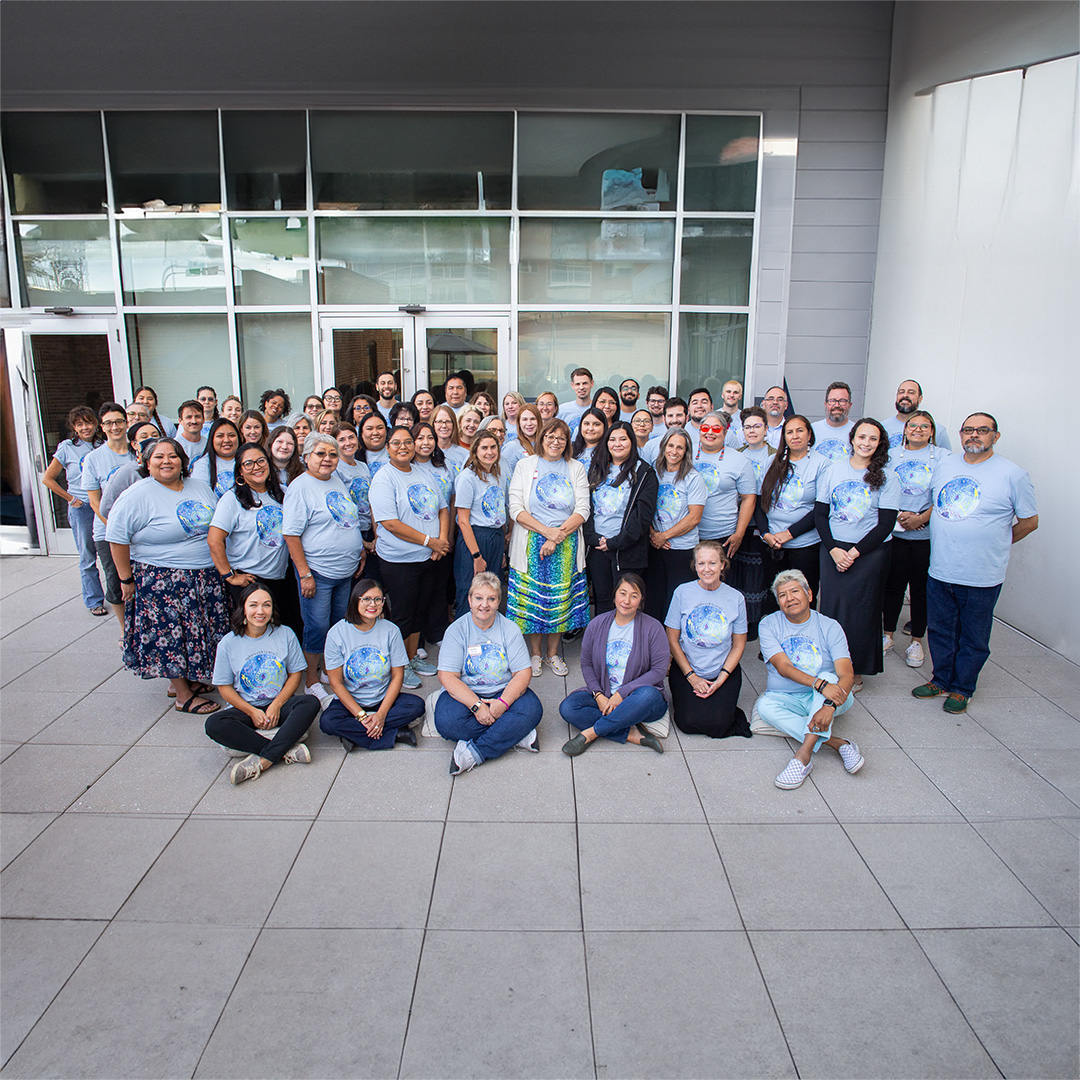The American Indian College Fund received $150,000 from The UPS Foundation to continue the UPS Foundation Tribal College Scholarship Program. For 14 years, the program has been providing scholarship support to students attending the nation’s tribal colleges and universities (TCUs).
Year: 2011 Blogs
FedEx Grants $25,000 to American Indian College Fund to Establish Scholarship Program
FedEx Corp. (NYSE: FDX) awarded $25,000 to the American Indian College Fund to provide 10 Native freshmen students attending tribal college with $2,250 scholarships for the 2011-12 academic year.

University of Colorado Lauds Richard B. Williams for Distinguished Service to Native Community
Richard B. Williams, President and CEO of the American Indian College Fund, was given the Distinguished Service Award from the University of Colorado Board of Regents in recognition of his dedicated service to American Indian students and their communities.

College Fund Honors Local Native Elders at Eleventh Annual Holiday Dinner
Not all holiday dinners are created equal. The Denver-based Native Elders Holiday Dinner sponsored by the American Indian College Fund has a distinctly Native flavor, from the meal itself (buffalo) to a Santa Claus that wears a war bonnet.
IBM Grants $30,000 to American Indian College Fund to Continue Scholarship Program
IBM awarded $30,000 to the American Indian College Fund for scholarships for tribal college students. The grant will support ten annual scholarships for students attending tribal colleges who are studying science, technology, engineering, mathematics, or business.

2011 Elders Dinner
Not all holiday dinners are created equal. The Denver-based Native Elders Holiday Dinner sponsored by the American Indian College Fund has a distinctly Native flavor, from the meal itself (buffalo) to a Santa Claus that wears a war bonnet. The event, now in its 11th year, honored American Indian elders 55 and older in the Denver community with a free dinner and program at the Church of All Saints
American Indian College Fund Receives $5,000 Grant from Master Key Consulting
Master Key Consulting, a leader in grants management support, software testing, and technology systems training, granted $5,000 to the American Indian College Fund towards the Master Key Consulting Tribal College Endowed Scholarship Program.
Give a Native Child the Gift of Reading
American Indian children could benefit greatly from the gift of reading this holiday season. The statistics on Native high school students who must enter remedial English upon entering college are alarming. Reading is the foundation of every course in college. Strong reading skills lead to strong writing skills, and both are the basis for success in not just English class, but chemistry, biology, engineering, and more.
The Herman Lissner Foundation’s Remarkable Legacy Funds Native Business Scholarships
The American Indian College Fund (the Fund) received a remarkable gift this year. The Herman Lissner Foundation granted the Fund $100,000 for Native student scholarships. The Fund regularly enjoys gifts from its corporate, individual, and foundation donors, but this gift stood out because of the personal nature of the donors who established the New York based non-profit foundation.
The Herman Lissner Foundation Grants $100,000 to American Indian College Fund Scholarships
The Herman Lissner Foundation has granted the American Indian College Fund $100,000 for scholarships for American Indian students. This grant will support qualified American Indian students who show academic achievement and involvement in their communities by providing financial resources to encourage them to complete a college degree in business administration, accounting, finance, marketing, tribal administration, or entrepreneurship.



